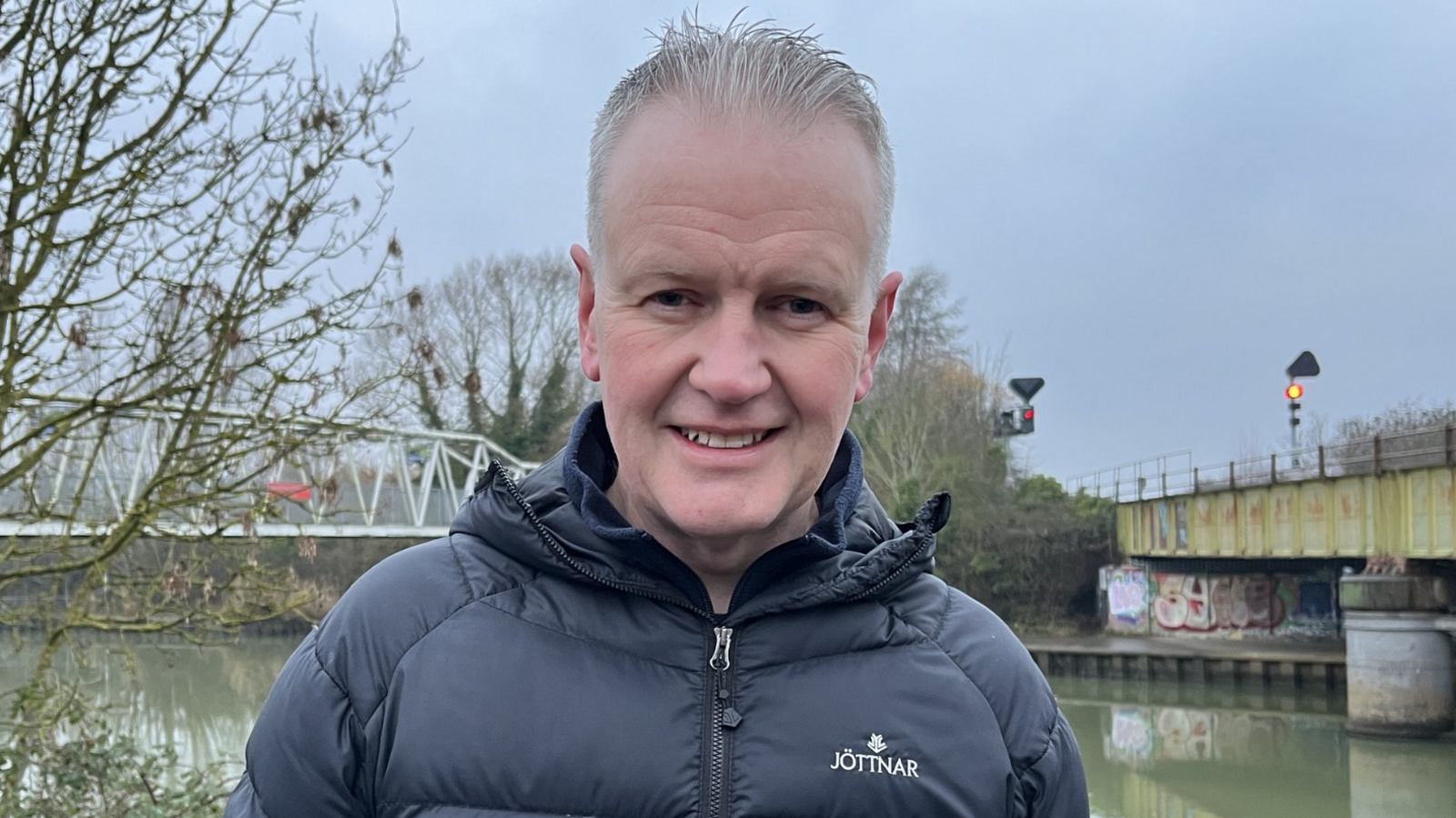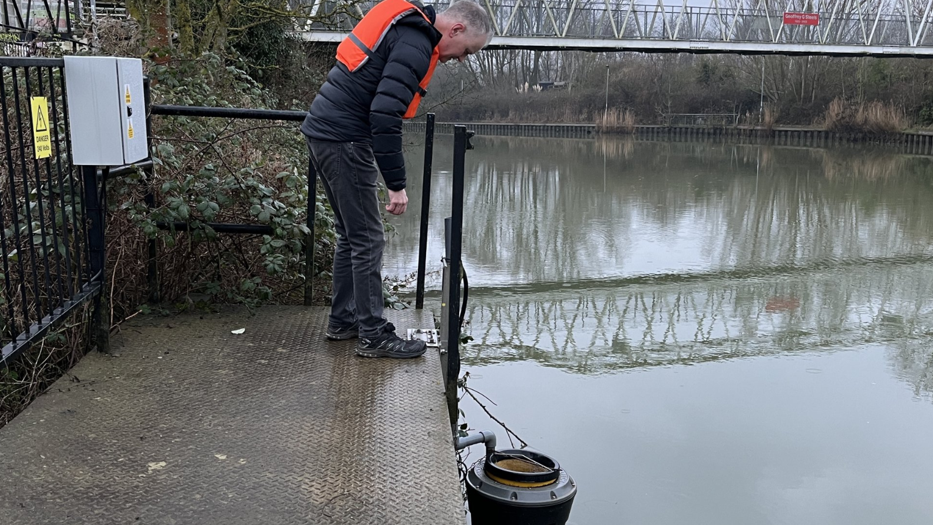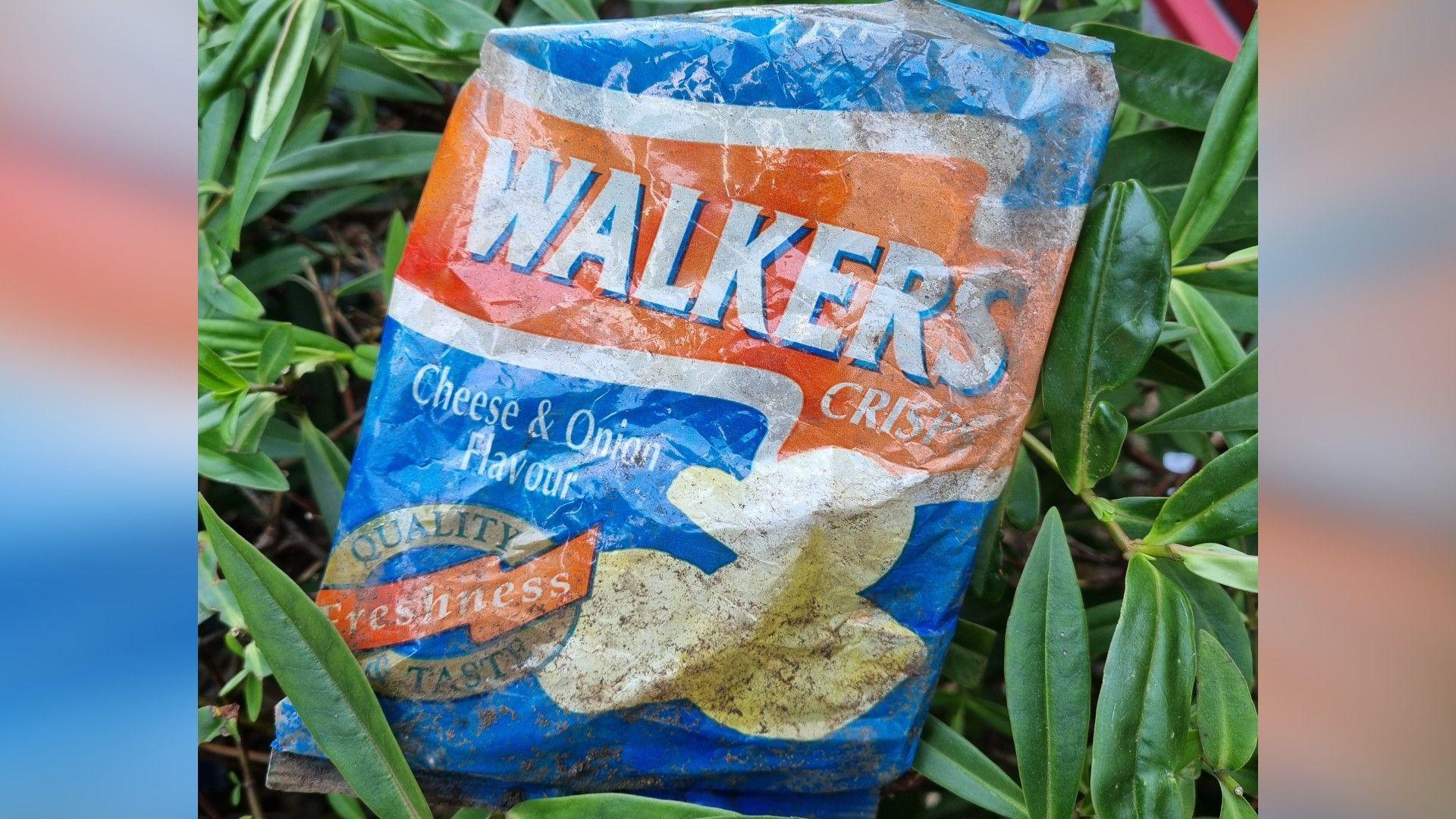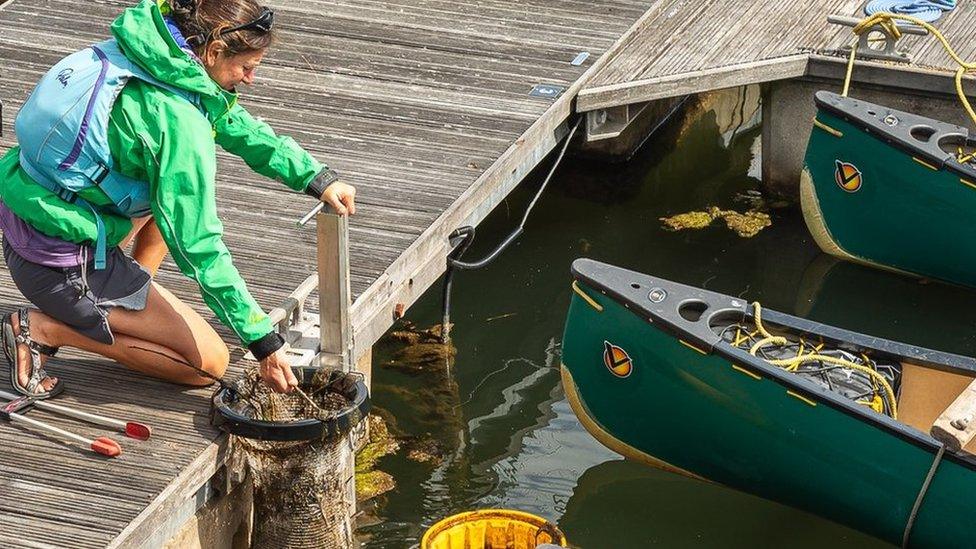Seabin skims river debris for microplastics tests

Steve Morgan said littering was a "systemic cultural problem"
- Published
A contraption that skims litter from water has been put to the test in a city's river to check for microplastics.
The seabin was floated in the River Nene in Peterborough to extract debris, particularly microscopic particles which cannot be seen by the naked eye.
Similar to the way fish tank filtration works, the seabin contains a pump and traps anything floating in the water in a mesh bag, which can then be emptied and analysed for pollutants.
"It's all about interventions - what can we do to make this area a better place," said Steve Morgan, of the UK plastics recycling charity Recoup
"I think littering is a systemic cultural problem and it's a seismic shift getting us away from littering and towards a much cleaner environment."

The seabin's motor sucks water - and any debris - from the river
The use of the seabin is part of a wider project by Recoup looking at litter in the Nene and surrounding areas.
Last summer, it found a Walkers crisp packet from 1997 "perfectly preserved" in a hedgerow, and previously uncovered plastic drinks bottles which had laid around for "20-plus" years, Mr Morgan said.
"We are trying to understand how microplastics get into our eco-systems, and we want to see the prevalence here, a very urban area," said Mr Morgan.
"There are lots of global studies into this but we are doing it at a local level."
Research from the University of Manchester in 2021 said untreated wastewater was creating microplastic hotspots on riverbeds.
A study published last year from universities in the USA found that bottled water could contain up to 100 times more tiny pieces of plastic than was previously estimated.
Get in touch
Do you have a story suggestion for Peterborough?
Follow Peterborough news on BBC Sounds, Facebook, external, Instagram, external and X, external.
Related topics
- Published28 June 2024

- Published23 July 2023
